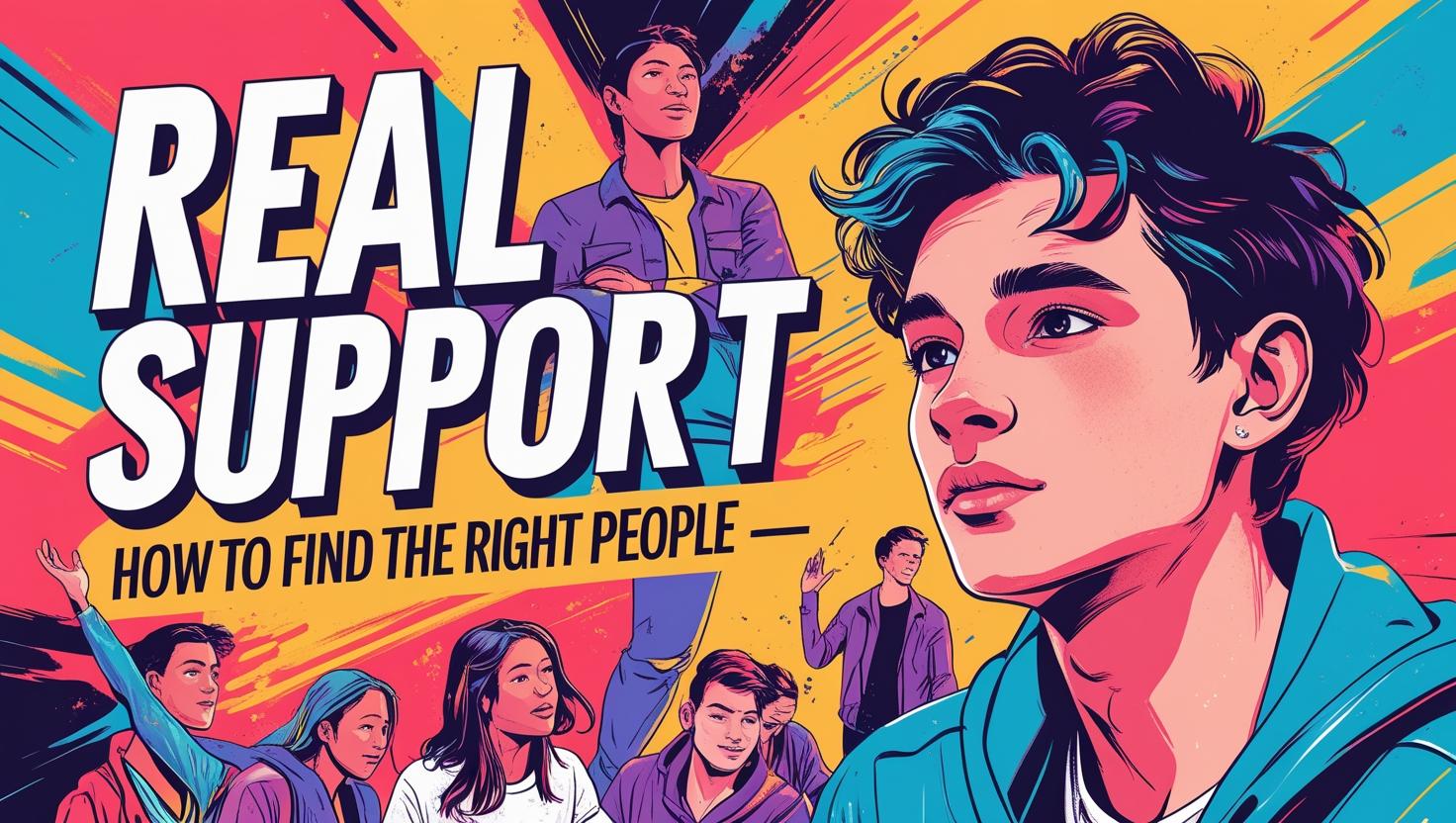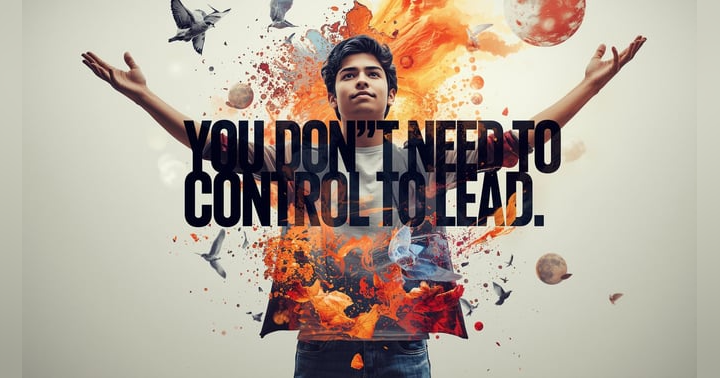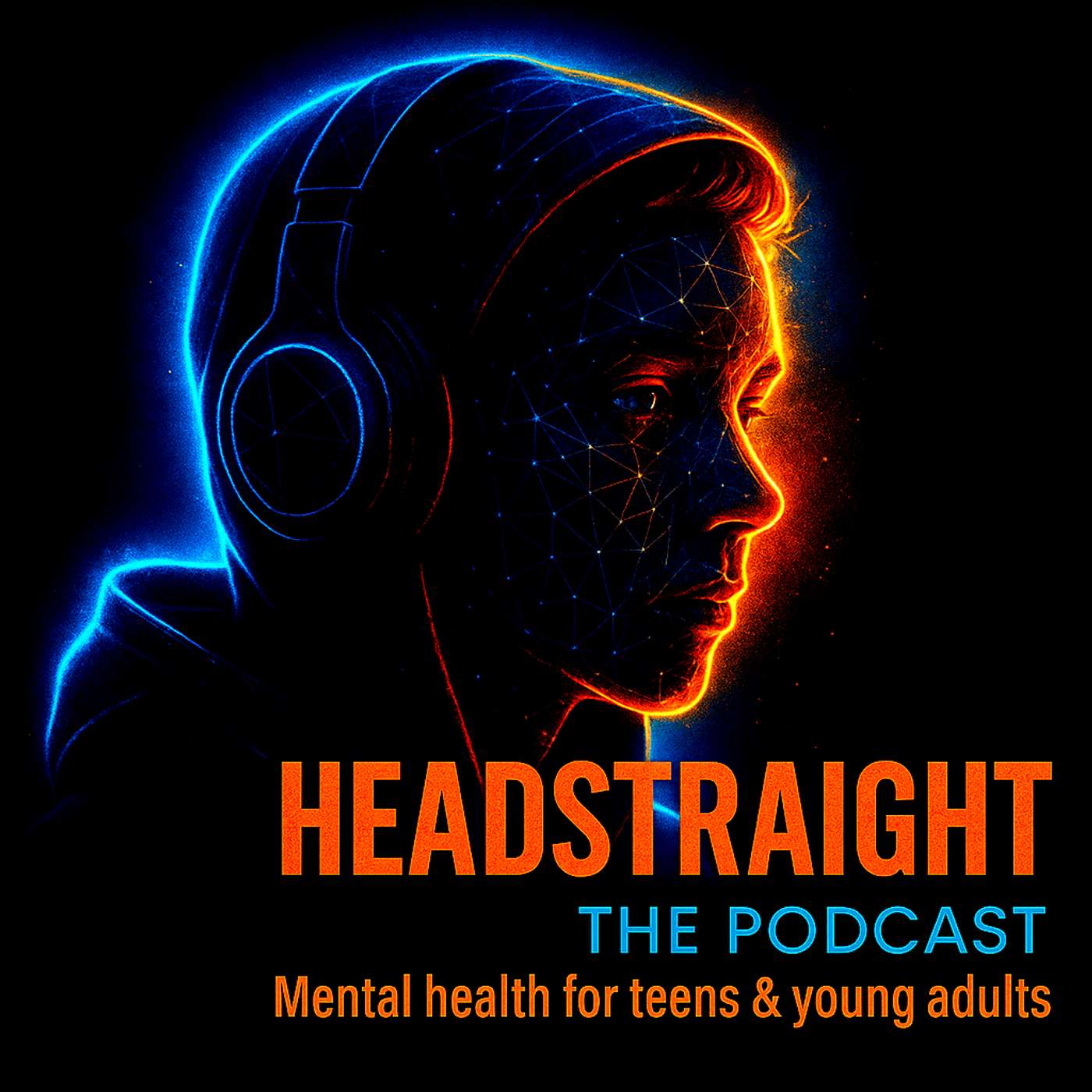Real Support — How to Find the Right People

Let’s be honest — it’s easy to say “reach out” or “talk to someone,” but what if you’re not sure who that someone is? What if the people around you look supportive on the surface, but when things actually get hard, they disappear, change the subject, or make it all about them?
That’s what this episode is about: figuring out who really has your back — and how to build a support network that actually shows up when life hits hard.
Because it’s not just about who’s there on the good days. It’s about who stays when things fall apart. And learning how to spot those people — and be one of them, too — makes all the difference.
🎧 Prefer to listen on the go?
Click here to open the episode on your preferred platform
What does “real support” actually look like?
Real support isn’t always obvious. It doesn’t always come with big emotional speeches or dramatic interventions. Sometimes, it’s a quiet check-in. Sometimes it’s a lift home when you need it. Sometimes it’s just sitting next to someone who doesn’t need to talk yet.
The truth is, support looks different depending on what you need — and depending on who’s giving it. Some people are listeners. Others are doers. Some just stick by you so you’re not facing it alone.
Start by asking yourself:
“What do I actually want when I’m struggling?”
Do you want advice? A distraction? Space to talk and be heard?
And just as important — what don’t you want?
Think about past moments when you’ve felt low or overwhelmed.
Who made you feel safe?
Who listened without trying to fix you?
Who made things worse — even without meaning to?
There’s no right or wrong answer. But your past gives you clues about what support feels like to you — and what you should be looking for now.
Take a proper look at who’s already around you
Before you start looking for new support, check your existing circle. Not the number of followers or who reacts to your stories — but who’s really there for you.
Ask yourself:
Do they listen properly, or just wait to talk?
Are they around when things are tough, or just when things are fun?
Do you feel better after spending time with them — or more exhausted?
This bit isn’t about blaming or ditching people. It’s about being honest. Some friendships are great for laughs but not for real life. That’s okay — as long as you don’t confuse the two.
Having a long friend list doesn’t mean you’re supported. It just means you’re connected. And that’s not the same thing.
You can’t build a strong network without showing up yourself
Support isn’t a one-way thing. If you want people who’ll show up for you, it helps if you’re the kind of person who shows up for them, too.
That doesn’t mean being perfect or always available. It just means trying — noticing when someone’s off, asking how they are, sending that follow-up message, remembering the thing they were worried about last week.
People remember that. And when it’s your turn to struggle, they’re more likely to be there — not because they owe you, but because they trust you.
Tell them they matter — and why it matters
This part can feel awkward — especially if you're not used to saying emotional stuff out loud. But it matters more than you think.
Try saying something like:
“Hey, I don’t say this enough, but you’re someone I really trust. Just knowing you’re there makes a big difference to me.”
When someone knows they matter to you, it strengthens that connection. It makes it more likely they’ll take you seriously next time you need help — because they’ll understand they’re not just one of many. They’re someone you count on.
Ask for help — and be clear about it
Don’t wait until you’re drowning to reach out. If something’s bothering you, speak up early. You don’t need to share everything in one go — just open the door.
Try:
“Can I run something by you?”
“I’ve been finding things hard lately — can we talk?”
“I’m not okay right now, and I could do with a chat.”
Being clear helps. It shows that what you’re saying matters. It invites the other person to really listen — not just skim over your words.
Say thank you — properly
When someone does show up, let them know it made a difference. Not just a quick “cheers,” but something more real.
Like:
“Thanks for sitting with me earlier. I really needed that.”
“I felt a lot better after we spoke — you’ve no idea how much that helped.”
Gratitude keeps people close. It builds trust. And it shows that you see their effort — and value it.
People will surprise you — in both directions
When you start being more open, some people will rise to the occasion. Others… might not. That’s not a sign you were wrong to try — it’s just information. It helps you figure out who’s really in your corner.
You might also find support in unexpected places:
A teacher who listens without judgement.
A coach who gives you honest feedback.
An older cousin who’s been through it before.
These people aren’t stuck in the middle of your social circle — and that distance can make their support calmer and more helpful.
And when things are serious — go to an adult you trust
If you feel unsafe, overwhelmed, or stuck — it’s not just about friendship. It’s about getting proper help.
That means going to someone with the experience and responsibility to do something about it. A trusted adult. A professional. Someone who takes what you say seriously and doesn’t fob you off.
That’s not being weak. That’s being strong enough to protect yourself — and smart enough to ask for backup when you need it.
Final thought
Real support isn’t about how many people you know — it’s about how many you can really count on.
It’s about building a small circle that matters. Showing up. Speaking up. Listening. Letting the people you trust know you trust them. And not staying silent just because it feels easier.
You deserve people who’ll walk with you — not just when things are going well, but when everything’s falling apart.
And you don’t have to go through any of it on your own.
Know someone who needs this?
Send it to them. Post it. Share the link.
Because someone out there might be feeling just as unsure — and this might be exactly what they needed to hear.



